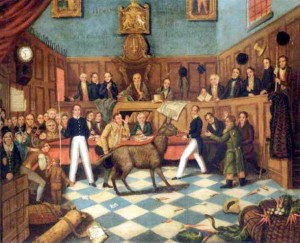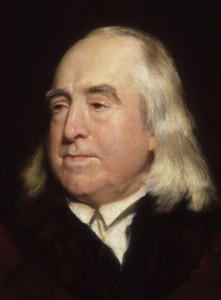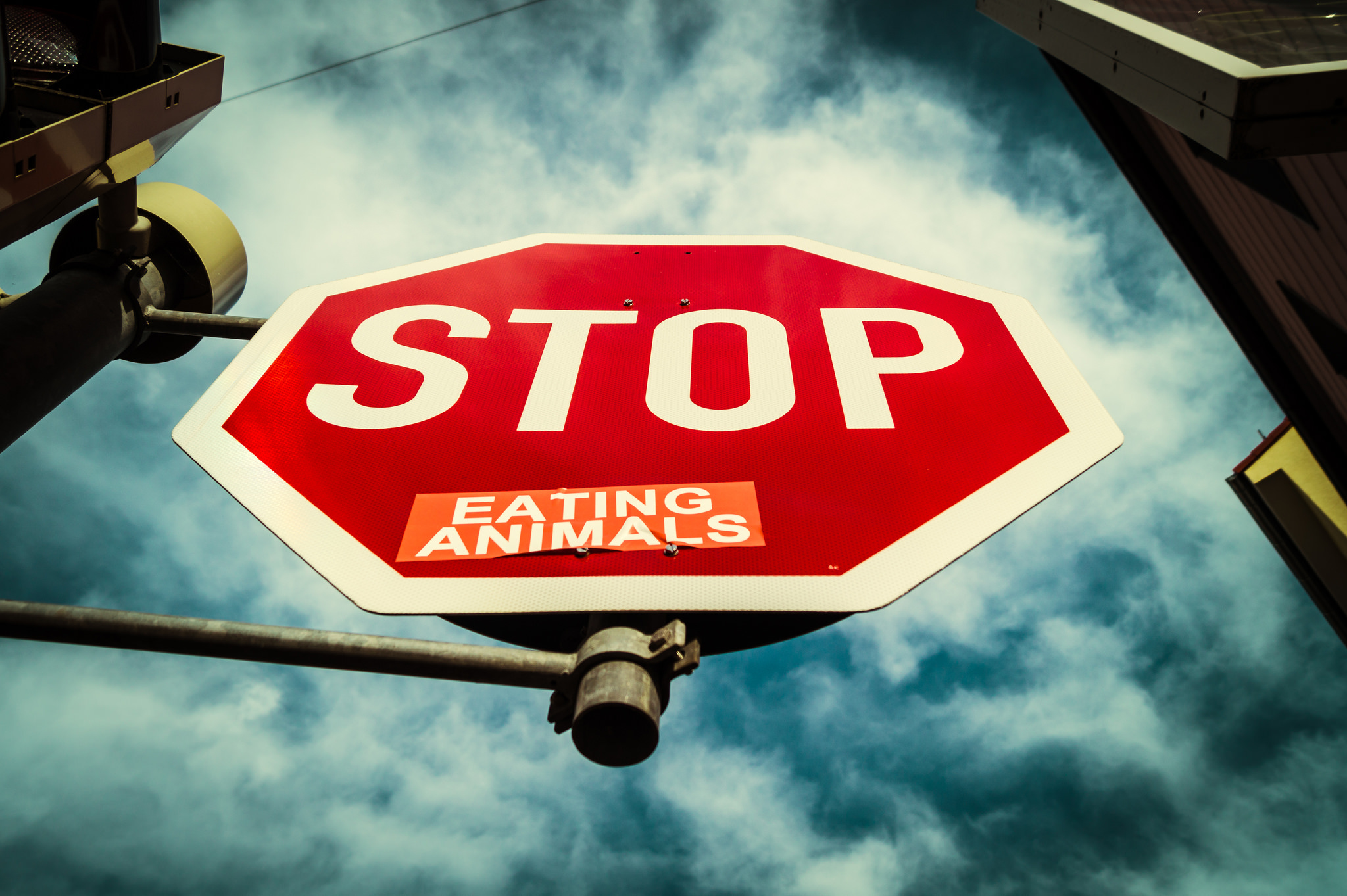Already the Greek mathematician and mystican Pythagoras founded an ascetic community in which, for ethical reasons, meat consumption was waived.
Also for Siddarta Gautama Buddha, vegetarianism was part of a comprehensive asceticism. According to Buddhism, Buddhist monks are not allowed to eat meat, at least when the animal has been specifically killed and known to the respective consumer. For all vegetarians of antiquity, it was important that a responsible attitude towards animals was regarded as good for human morality. The fact that an animal could have rights itself did not matter. In some ways, however, animals were already regarded as “legal subjects” in the Middle Ages and into the 17th century. There were regular trials against animals that had attacked people, for example.

They even helped them as lawyers. If they were condemned, they were also sometimes straightened by hanging. Also a cockchafer larvae were placed before a court. A dog who did not protect his master in distress could be accused of “omitted assistance”. Even in the Bible, animals are partly integrated into human rights. In the second book of Moses it is said, that if a cow would thrust a man or a woman, that they may die, then the ox should be stiff, and his flesh should not be eaten, while the owner of the cattle should remain unconsolidated.
In the modern age, the French politician and philosopher Michel Eyquem de Montaigne equalized humans and animals within his philosophy in the 16th century but was not a vegetarian. In the 17th century the English merchant Thomas Tryon demanded non-violence against all kinds of animals and developed the idea that animals had their own rights. This, too, was part of a total ascetic way of life. The animal rights idea is also found in Arthur Schopenhauer, who is not known as a great friend of humans: Animals would not be a product of humans’ use, he argued. Human would owe not mercy, but righteousness to the animals.
The basic principles of modern animal rights philosophy date back to the English philosopher Jeremy Bentham, who lived in the 18th and 19th century.

Bentham announced that it would be unimportant whether animals could think or speak, that their characteristics, suffering, and pain were decisive. The basis of his thinking was “utilitarianism,” a philosophical school that assumes that the goal of human action is to achieve as many advantages as possible for, while archieving as little as possible disadventatges for beings. In order to define what is necessary and what is a disadvantage, Bentham drew pain as a criterion. Why, he asked, should a border be drawn between humans and animals? Is it the ability to think or perhaps the ability to talk? But an outgrowed horse or a dog would be incomparably more sensible and more communicative than a one-day, one-week, or even a month-old infant of humans. But suppose these were not so, what would it matter?, he asked.The question wouldn’t be: can they think? Or can they talk? But can they suffer? Bentham himself was at the same time a supporter of a totalitarian state, but he was not a vegetarian, and did not refuse the killing and eating of animals, since these, in his argumentation, would not have a very long-lasting premonition of future suffering and the death they had.
In the 19th century, vegetarians began to organize themselves. In 1801, the first vegetarian association was founded in London. In 1824 the first animal welfare organization, the “Royal Society for the Prevention of Cruelty to Animals”, was founded by the founders for ethical reasons for a vegan diet. Henry Salt also published in 1892 a manuscript entitled “Animal Rights”, which many of today’s animal rights writers refer to. In Germany, the German Association for Natural Life (Vegetarian) was founded by a pastor named Eduard Baltzer in 1876, and in 1892 various organizations joined forces to form the German Vegetarian Federation. The animal welfare idea was then restored by the nazis, who passed the first animal welfare law and banned animal experiments. Heinrich Himmler wrote, that only an “Aryan” would be capable of including the animal in laws, while it is lawless in countless other countries on this earth. Adolf Hitler was a vegetarian.
